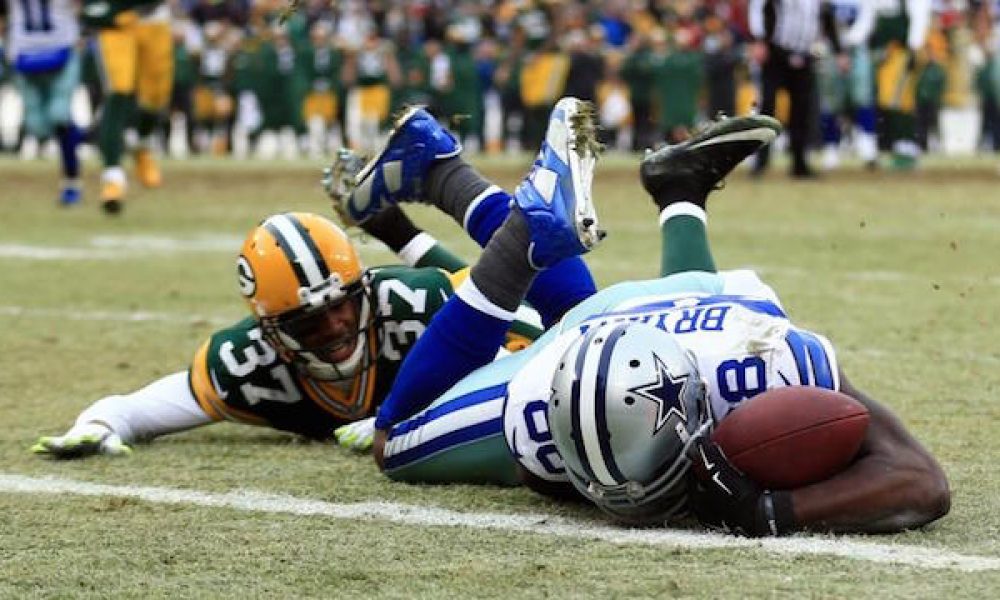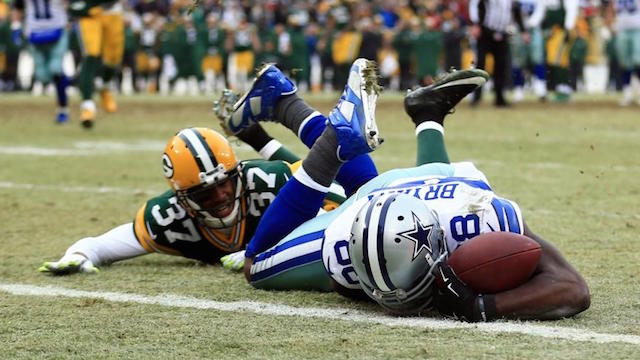
NFL Rewrites Infamous “Dez Bryant†Rule, Changes Terminology
The “Dez Bryant†rule, the “Calvin Johnson†rule…call it whatever you want, but whichever way you spin it, the fact remains the same: one of the most ambiguous and controversial rules in football has finally been improved.
The process of “making a catch†has become a serious point of contention in recent seasons. Now, the infamous “football move†criteria for a completed pass has been stricken from the rulebook, although the rest of the major principles remain the same.
Fox Sports analyst and former NFL Vice President of Officiating, Mike Pereira, explained the fresh changes on Twitter.
“A player is considered to be going to the ground if he does not remain upright long enough to demonstrate that he is clearly a runner. If a player goes to the ground in the act of catching a pass (with or without contact by an opponent), he must maintain control of the ball until after his initial contact with the ground, whether in the field of play or the end zone.â€
“If he loses control of the ball and the ball touches the ground before he regains control, the pass is incomplete,†he added. “If he regains control prior [to] the ball touching the ground, the pass is complete.â€
While the concept of “control†has remained intact, the requirement of a “football move†– a vague and interpretative term that relies less on set guidelines and more on the subjective perception of the official – has been omitted.
The rule first gained notoriety in 2010, when Detroit Lions wide receiver Calvin Johnson appeared to have scored a last-second touchdown to defeat the Chicago Bears. More recently, the rule robbed Dez Bryant and the Dallas Cowboys from a potential trip to the NFC Championship Game in Seattle last season.
In both instances, the receiver appeared to control the football until it squirted out upon contacting the turf, long after what many people would consider the point of completion when using the naked eye.
The terms may have changed, but we have a feeling the controversy is only just beginning.



